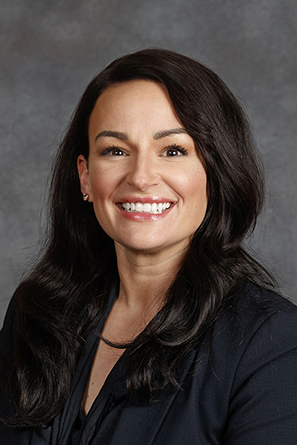Native Vote. Legislation introduced on Wednesday, Feb. 28, in the Nebraska legislature would study barriers to voting access for the state’s Native American population.

The legislation, LB1262, was introduced by Sen. Jen Day of Omaha. It would create a Native American Voting Rights Commission within the Nebraska Commission on Indian Affairs. The new commission would contract with a consultant with expertise in tribal issues to conduct a study to determine barriers to voting and equal representation for Indian tribes in Nebraska.
As introduced, the bill would require the commission to submit an annual report and ongoing policy recommendations to the Legislature beginning Dec. 31, 2025. Day said she would offer an amendment to change that requirement to a one-time report.
Day said Thurston County is home to the largest Native American population in Nebraska and regularly has the lowest voter turnout of any county in the state. Geographic isolation, nontraditional mailing addresses, poor roads and technological barriers may be just a few of the reasons why, she said.
Several other states have conducted similar studies or used a national report to implement recommendations for removing voting barriers, she said, and LB1262 could provide the same opportunity for Nebraska.
“By asking the right questions, our state will be able to discover the barriers to voting [that are] particular to Nebraska’s tribal lands so we can explore policy changes that would improve accessibility for all Native Americans in our state,” Day said.
Eugene DeCora Sr., an elected member of the Winnebago Tribe of Nebraska Tribal Council, testified in favor of LB1262. Deliberate efforts have been made to silence Native American voices in every level of government, he said, including in Nebraska, where he said the redistricting process has diluted the voting strength of members of the Winnebago Tribe.
“Voting — having a voice in government — is at the core of what it means to be an American,” DeCora said.
Nora Lenz also spoke in favor of the proposal on behalf of the Nebraska State Education Association. Many Native American communities are on the front lines of important public policy concerns, she said, including environmental, health and educational issues.
LB1262 would help promote the “active empowerment” of Native American voters, Lenz said, by taking the state’s history and voting trends into account when determining barriers to Native voter participation and finding ways to remove those barriers.
The committee took no immediate action on LB1262.
More Stories Like This
Native News Weekly (August 25, 2024): D.C. BriefsUS Presidents in Their Own Words Concerning American Indians
Native News Weekly (January 18, 2026): D.C. Briefs
Federal Judge Orders ICE to Halt Use of Pepper Spray, Arrests of Peaceful Protesters in Twin Cities
Tunica-Biloxi Cultural Leader John D. Barbry Walks On
Help us defend tribal sovereignty.
At Native News Online, our mission is rooted in telling the stories that strengthen sovereignty and uplift Indigenous voices — not just at year’s end, but every single day.
Because of your generosity last year, we were able to keep our reporters on the ground in tribal communities, at national gatherings and in the halls of Congress — covering the issues that matter most to Indian Country: sovereignty, culture, education, health and economic opportunity.
That support sustained us through a tough year in 2025. Now, as we look to the year ahead, we need your help right now to ensure warrior journalism remains strong — reporting that defends tribal sovereignty, amplifies Native truth, and holds power accountable.
 The stakes couldn't be higher. Your support keeps Native voices heard, Native stories told and Native sovereignty defended.
The stakes couldn't be higher. Your support keeps Native voices heard, Native stories told and Native sovereignty defended.
Stand with Warrior Journalism today.
Levi Rickert (Potawatomi), Editor & Publisher


